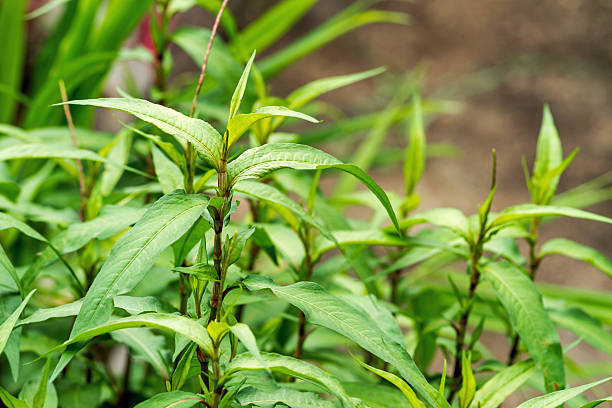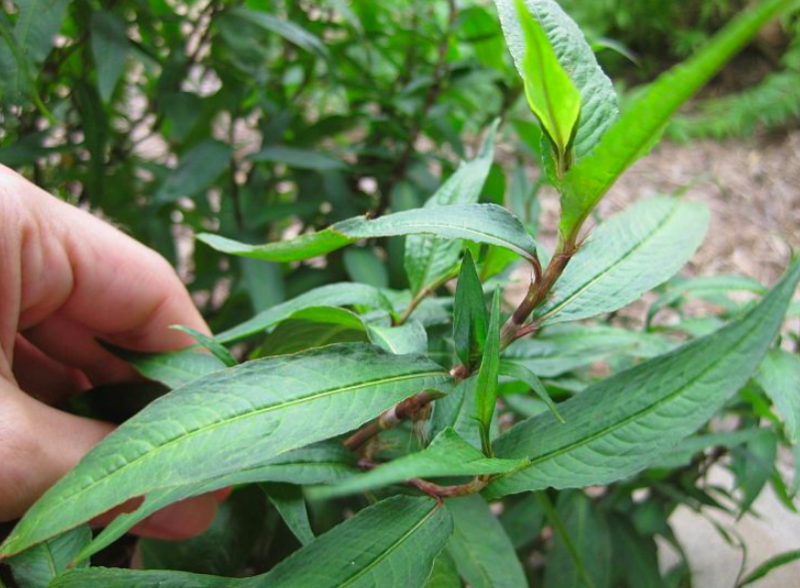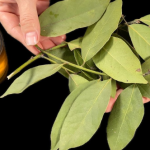Vietnamese coriander, a common herb in many Southeast Asian cuisines, is not only a versatile ingredient but also has a place in traditional medicine. Its spicy, aromatic flavor and warm properties make it a valuable addition to your garden and daily life. Let’s explore its potential benefits and uses based on verified information.

Traditional Medicinal Properties of Vietnamese Coriander
In traditional medicine, Vietnamese coriander is believed to have warm properties and offers the following benefits:
- Supports digestion: It may help reduce bloating and indigestion when consumed as part of meals.
- Relieves mild cold symptoms: Combined with ingredients like ginger or perilla, it is traditionally used to ease cold symptoms.
- Mild antiseptic properties: When applied externally, it is thought to help cleanse minor wounds.
Uses Backed by Tradition and Moderation
1. Relieving Bloating and Indigestion:
- Vietnamese coriander is often consumed raw as a garnish or boiled as a tea to support digestion.
2. Mild Skin Support:
- In traditional remedies, crushed Vietnamese coriander leaves have been used as a mild cleanser for minor skin irritations. However, proper hygiene and caution are necessary to avoid infections.
3. Supporting Cold Relief:
- A tea made with Vietnamese coriander, ginger, and perilla leaves may help alleviate mild cold symptoms by warming the body.
Conclusion

Vietnamese coriander is a wonderful herb to have in your home for culinary purposes and minor traditional uses like supporting digestion or easing mild cold symptoms. However, it’s essential to approach its medicinal uses with caution and avoid relying on it for serious medical conditions. Always seek professional medical advice when dealing with health concerns.
By using Vietnamese coriander wisely, you can enjoy its benefits while ensuring your safety. 🌿

